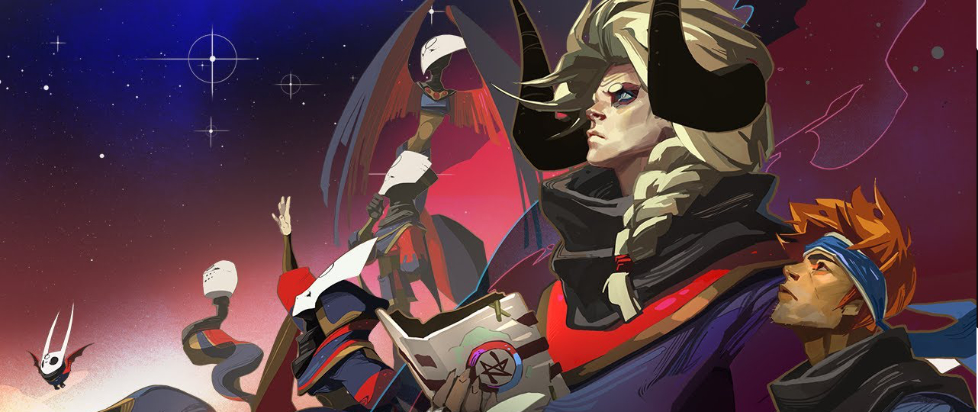
Never to Return

This column is a reprint from Unwinnable Monthly #168. If you like what you see, grab the magazine for less than ten dollars, or subscribe and get all future magazines for half price.
———
Courting chaos.
———
There is no perfect playthrough of Pyre: even if everything goes exactly the way you want it to, you are always compromising, and the best outcomes are often tinged bittersweet. It’s a story of exiles fighting for their freedom, against opponents who want the exact same thing. It’s a game where the companions best placed to be sent off to win a revolution are also your most practiced and skilled competitors. It’s a journey where the characters you care about most deeply and want to see return home are also the ones you want to keep by your side.
These are the big picture tensions in Supergiant’s less-loved 2017 game, and they shape it so that your first playthrough is unlike any playthrough that comes after. In the beginning, the narrative happens to you. The story continues through both failed and won rites, and your opponents change their relationships to you – and grow in strength as adversaries – when you meet them. Your choices feel less like choices, and more like reactions and adaptations to the twists and turns of fate. Growth, and struggle, are organic: in its own words, the only failure is to stray from the path.
Once you know how these systems work, however, in any subsequent playthrough you can know exactly what compromises you want to make. Still compromises, still bittersweet and still working towards an ending that can never be perfect – but with skill, you can intentionally weave a narrative where you face your opponents, and say goodbye to your friends, on your own terms.
There’s something to be said for the careful construction of an imperfect narrative – planning who stays behind, whose needs will be unfulfilled, and whose goals will be obstructed – but I missed that initial feeling of being at the narrative’s mercy. This brings me to Pyre’s unlockable difficulty setting, where you can’t reload checkpoints, and you have to choose increasing numbers of debuffs for your rites over time.
In theory, your successes can snowball in this mode, as winning a match with the debuffs on makes your characters level up faster than they do on a standard win or lose – but while I’m good at Pyre, my reaction speed at fantasy basketball simply isn’t that sharp. My buffed opponents outperformed me, and as the losses stacked up, the skill gap only increased.
This didn’t quite take me back to that “first playthrough” experience of Pyre – for one, I was better even as an inexperienced player, but for another, I know its systems too well. I still found myself trying to shape the narrative, but this time while anticipating my losses, instead of wins. I was able to strategically seek out losses that would benefit opponents I liked better, or to ensure the worst people never had the chance to escape exile. If I couldn’t free any of my own friends, I could at least navigate the least worst outcome.
As I never intentionally threw a match, this made the rare wins sting. The rush of excitement, boosted by the accelerated swell of experience and the brief hope that maybe this would make the difference between now and the next rite – all mingled with the knowledge that any future failures would now have much worse consequences.
A regretful win isn’t unique to this specific playthrough – there are always opponents that it feels awful to see condemned to exile at your hands – but it’s a strange inverse that’s unique to having reached the point of knowing the game particularly well. Winning doesn’t feel bad, here, because I beat a team I liked, in a run of crushing victories – but because I failed to lose, in a move that would have knock-on effects in three rite’s time. It feels like knowing Pyre’s secrets should remove its surface tensions, but a risk you know how to calculate just makes the gambles feel larger.
———
Ruth Cassidy is a writer, critic, and self-described velcro cyborg. You can find their portfolio and more at linktr.ee/ruthvcassidy.




